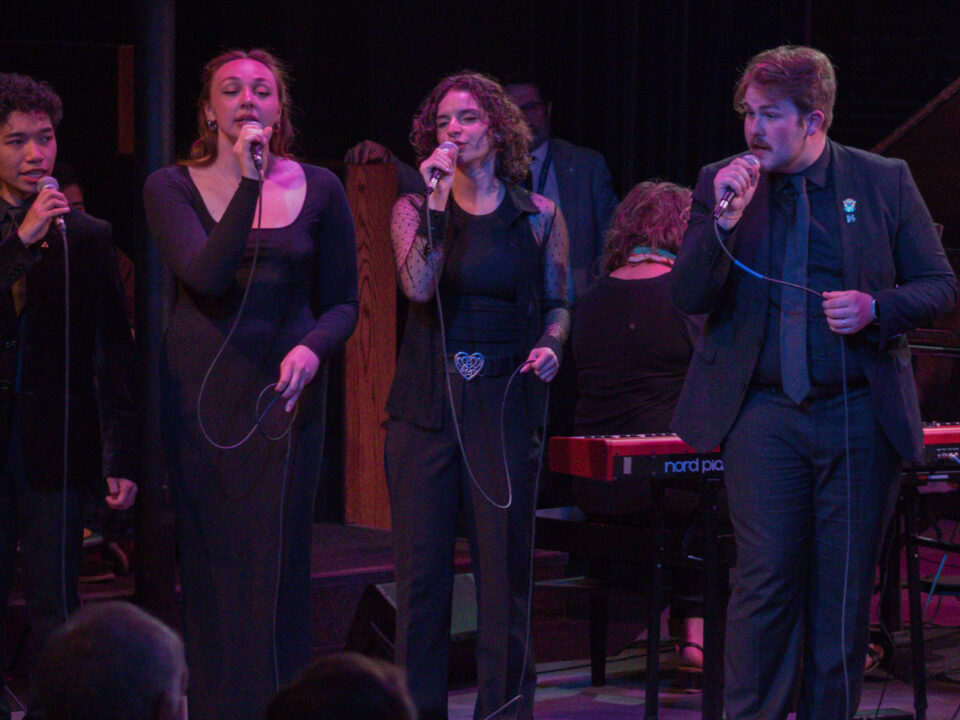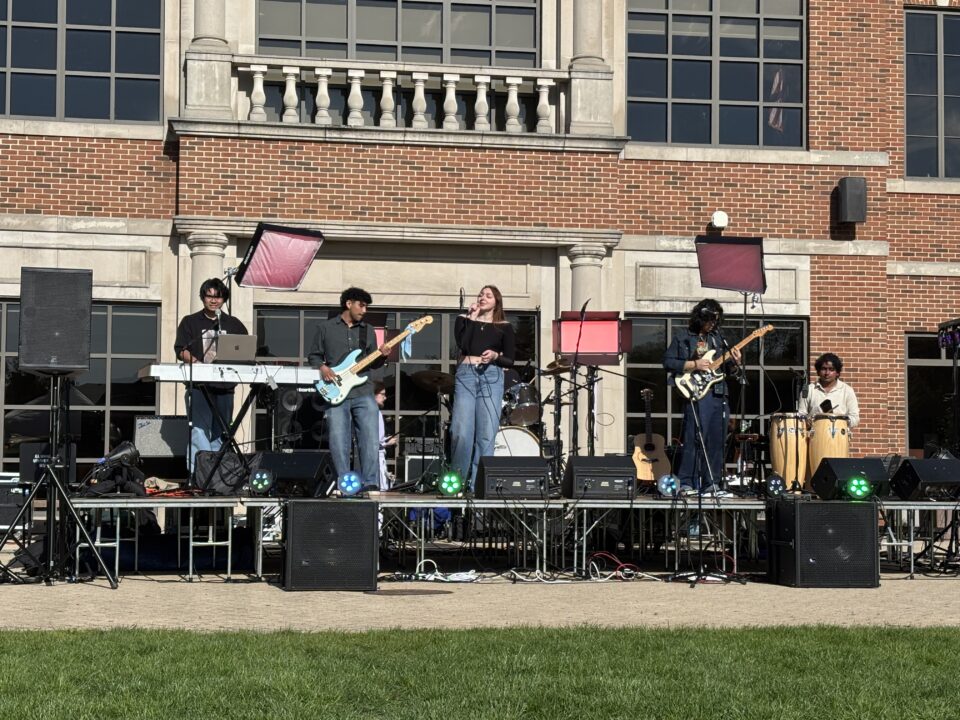ONLINE EXCLUSIVE: The Weeknd’s “Dawn FM” Album Review
Canadian singer-songwriter, Abel Tesfaye, artistically known as The Weeknd, released his fifth studio album, “Dawn FM” on Jan. 7.
Much like the cover — an image of The Weeknd as an elderly man thanks to prosthetics — this album perfectly depicts his matured sound and evolved mindset professionally, and even personally.
With narration from highly acclaimed actor Jim Carrey, an appearance from Michael Jackson’s “Thriller” producer Quincy Jones, and only two features attributed to artists Tyler, The Creator, and Lil Wayne, “Dawn FM” easily secured the number one spot on multiple Billboard charts.
The Super Bowl LV halftime performer is known for his melancholic and provocative lyrics after reaching stardom from his mixtapes turned compilation album, “Trilogy.” Throughout his career, he has proven to be unafraid of experimenting with new sounds.
With tracks in the second half of the album like “Out of Time,” “Is There Someone Else?” and “Less Than Zero,” The Weeknd showcases mastery in his typical genres such as pop, hip hop and alternative R&B.
To fans who haven’t followed along with his progression as an artist, in tracks from “Gasoline” to “Take My Breath,” he unexpectedly captivates the listener in effortless transitions, encompassing 80s synthwave, dance, and electronic music.
Now, as a stan for almost 10 years, I have no shame in admitting how much I obsess over “Dawn FM.” Simply putting it, it’s an otherworldly masterpiece.
Sadly, my opinion tends to be overshadowed by so-called fans hell-bent on wanting to hear more songs of the same caliber as “Wicked Games.”
Don’t get me wrong, that’s when I became a fan too, but this is back when The Weeknd’s mental health was deteriorating. I’m talking about the depths of escapism and how he used it as an unhealthy coping mechanism alluding to his dark twisted perception of reality.
He was — and in some ways still is — the epitome of toxic masculinity, and the classics “Trilogy” and “Kiss Land” really capture the essence of the vulnerable cycle he endured, and the pain The Weeknd inflicted on himself and his love interests.
But in contrast to his other projects, “Dawn FM” is exactly what it sounds like.
It’s a radio station being played in a car traveling through a terrifying tunnel. The station, 103.5 Dawn FM, plays songs to guide and prepare you for the first appearance of light in the sky before sunrise. Except for this time, the sunrise or rather — the light at the end of the tunnel — symbolizes the afterlife, and the car ride is otherwise known as purgatory.
Following the darkness of his past, his metaphoric death, and his first step in transitioning from a physical to a spiritual entity, The Weeknd uses “Dawn FM” to further progress the story of “After Hours,” the prequel album to his new trilogy.
The concept of “Dawn FM” was executed flawlessly through poetic lyricism and the production’s ethereal architecture; taking The Weeknd from what was once a drugged-out oblivion to the harsh spiritual awakening of his decisions.
I’m curious to see if “After Life,” the tentative title for The Weeknd’s upcoming sixth studio album, will be set in heaven or hell as the third and final part of his second trilogy.


